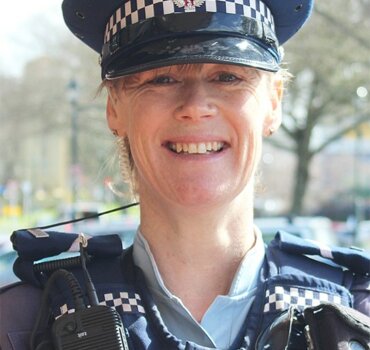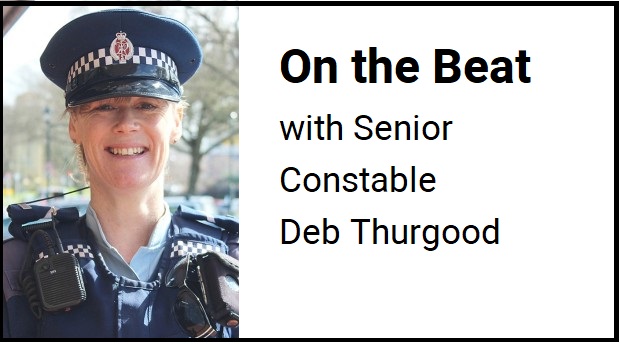
Deb Hann

By Deb Thurgood
In my last column I spoke about supporting the wellbeing of our younger community members. Today I’d like to talk about those at the other end of the age spectrum. As Police we come across our older citizens in many different situations. Covid-19 permitting, I speak with senior community groups, we support older victims of crime, we get asked to do welfare checks on older people living alone if a mishap is suspected, as well as searching for and locating people who have become confused and gone wandering. I have previously written about the supports available around dementia and Alzheimer’s for sufferers and their families. Just last week, I had the opportunity to experience the tracking of WandaTrak pendants and have spoken with the team at WanderSearch around how I can enhance Police links with individuals and their families using this reassuring technology in our community.

Be Kind
On the health front, Covid-19 itself poses an increased risk for our elderly citizens, especially those with underlying medical conditions and/or compromised immunity. For our older community members however, hardship can also stem from other aspects of life. For many, the fear of being a burden or not knowing where to start, makes it hard to reach out for assistance and support when needed. This need may be financial, emotional or practical in nature. Normal routines have been disrupted for a number of weeks and community and social groups have not been operating. With Covid-19 limiting domestic and international travel, family contact may also not be as close as it once was, limiting regular physical visits. Isolation and loneliness are real.
So how can we support our senior citizens? Connection is a big thing. Get to know your elderly neighbours, exchange contact details, call for a chat, or pass the time of day (socially distanced) over the fence. Often a friendly face or voice is just what is needed to reduce any anxiety and sense of feeling alone. By getting to know your neighbour’s routines, you are more likely to notice if something does go amiss and thereby trigger the call for assistance early. By building these relationships, we can better take care of those around us, enabling us to see where help may be needed and making it more likely that if offered, help will be accepted, something that is difficult for some. Make that first step today.
To finish, with thanks to Cambridge News, I am excited that these columns will now be directly accessible on the Cambridge News website. Going forward, should you for example wish to re-read a column, email a link to a friend or share it on Facebook, go to www.cambridgenews.nz and put my name in the search field. Have a great week! Deb








